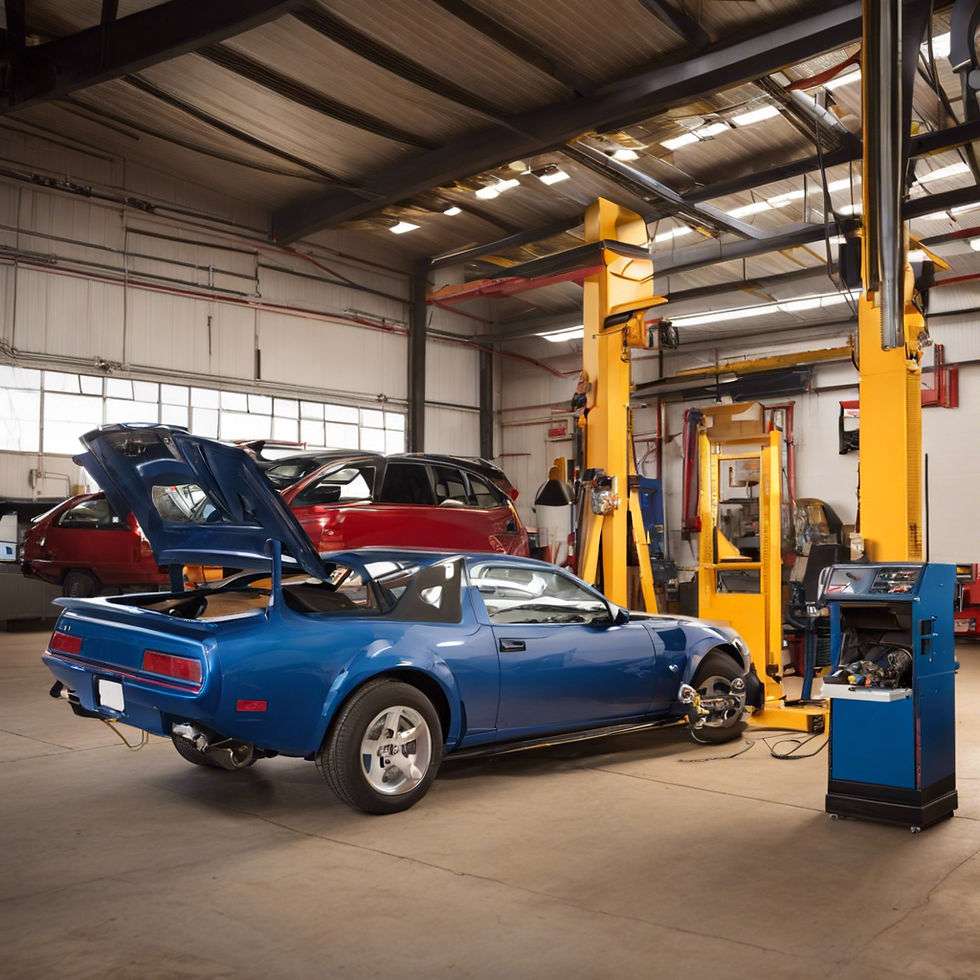Top FAQs About Automotive Repairs, Parts, and Maintenance
- Autolast Ghana

- Jul 29, 2024
- 3 min read
Owning a car comes with its fair share of questions and concerns. Whether you're a seasoned driver or a new car owner, understanding the basics of automotive maintenance and repairs can save you time, money, and stress. At AutoLastGH, we're here to answer some of the most frequently asked questions to help you keep your vehicle in top shape.
General Automotive Repairs FAQs

1. How often should I change my oil?
Regular oil changes are crucial for maintaining your engine's health. It's generally recommended to change your oil every 3,000 to 5,000 miles, but this can vary based on your vehicle's make and model. Always refer to your owner's manual for specific guidelines.
2. What does the check engine light mean?
The check engine light can indicate a range of issues, from a loose gas cap to more serious engine problems. If this light comes on, it's best to have it diagnosed by a professional mechanic to avoid potential damage.
3. How often should I rotate my tires?
Tire rotation is typically recommended every 6,000 to 8,000 miles. Regular rotation ensures even wear and extends the life of your tires, providing better handling and safety.
Repair-Related FAQs
1. How do I know if my brakes need to be replaced?
Common signs that your brakes need attention include squeaking or grinding noises, a spongy brake pedal, or the car pulling to one side when braking. If you notice any of these symptoms, it's time to get your brakes checked.
2. What should I do if my car overheats?
If your car overheats, pull over safely, turn off the engine, and wait for it to cool down before checking the coolant level. It's important to have a mechanic inspect it to prevent further damage.
3. Why is my car making a strange noise?
Strange noises can be caused by various issues, such as worn-out belts, low fluids, or engine problems. A professional mechanic can diagnose the exact cause and recommend the necessary repairs.
Parts-Related FAQs
1. How often should I replace my air filter?
Air filters should generally be replaced every 12,000 to 15,000 miles, but this can vary based on driving conditions. A clean air filter improves engine performance and fuel efficiency.
2. What are the most commonly replaced car parts?
Some of the most frequently replaced parts include brake pads, batteries, spark plugs, and air filters. Regular maintenance of these parts ensures your car runs smoothly and efficiently.
3. How can I tell if my battery is dying?
Signs of a dying battery include slow engine crank, dim headlights, and the battery warning light on the dashboard. If you experience any of these issues, it's time to get your battery tested and possibly replaced.
Maintenance FAQs
1. What regular maintenance does my car need?
Regular maintenance includes oil changes, tire rotations, brake inspections, and fluid checks. Refer to your owner's manual for a detailed maintenance schedule tailored to your vehicle.
2. How can I improve my car's fuel efficiency?
Maintaining proper tire pressure, regular oil changes, and avoiding aggressive driving can help improve fuel efficiency. Simple habits like these can save you money on fuel in the long run.
3. When should I replace my timing belt?
Timing belts should typically be replaced every 60,000 to 100,000 miles, depending on your vehicle's specifications. A worn timing belt can cause serious engine damage, so timely replacement is crucial.
By addressing these common Automotive Repairs FAQs, we hope to empower you with the knowledge to take better care of your vehicle. For more tips and expert advice, visit AutoLastGH regularly. Safe driving! 🚗🔧



Comments